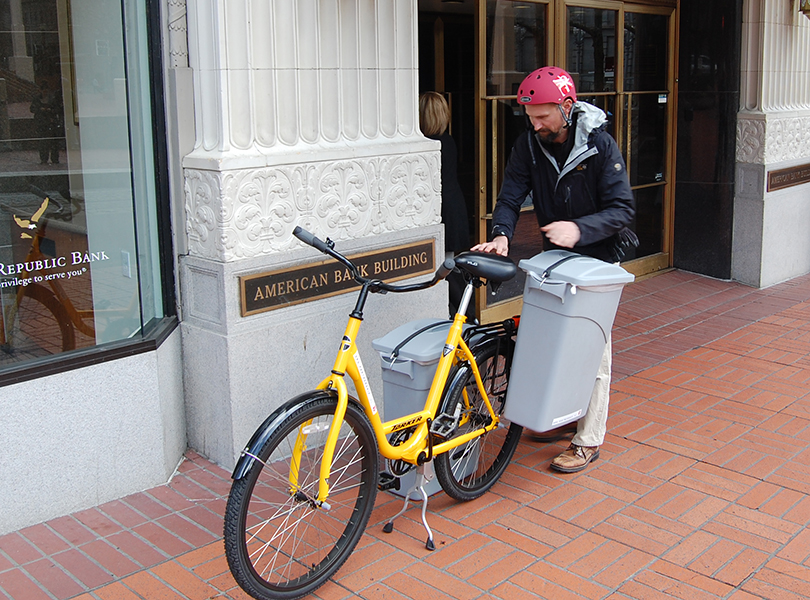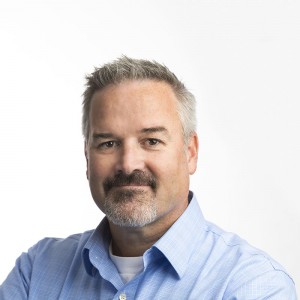Anyone that's dealt with recycling has wished it could be easier. Aren't we all looking for that bulletproof solution? Or more aptly a foolproof solution that avoids all the confusion of what exactly is recyclable. We know that much of what is thrown out in this country is reusable and the desire to do the right thing and tread more lightly on the planet leads us towards wanting to recycle what we are done using. Not all cities support recycling with the typical curbside pick-ups, requiring people in those locales to deliver their recyclables to local depots for collection. The franchises in Portland do pick up recyclables at the curb, but they don't pick up everything, limiting themselves to paper, metal, plastic tubs and plastic bottles and unbroken glass. I've never fully understood why glass is less recyclable if broken since the first thing they do after collecting it is break it so it takes less space. In Seattle and San Francisco they actually have people sorting the recyclables for you prior to the landfill, but I think that really only increases the confusion since you throw everything into a bin and let someone else deal with it. Where is the knowledge in that? Ironically those cities do not have a higher diversion rate because they are still cherry picking the recyclables of most value: paper, metal, plastic tubs and plastic bottles and unbroken glass. What about items like Styrofoam, rigid plastics (like clam shells), plastic bags, batteries, cell phones, fluorescent lights and, until recently, commercial composting. None of these items should go into the landfill.

So if no one is taking your recyclables at the curb side pick-up, what do you do? Sorry, no silver bullet here-you'll have to take your recyclables to the local depot like most of the country. How you do so can take many forms, but this is how the Sustainability Committee approached it at SRG. To expand our recycling beyond the curb, initially we started with more receptacles for those items that are not accepted by the city curbside program but are recyclable at the local recycling depots such as Far West Fibers. We would then drive the recyclables in an office car to the depot quarterly. Then about four years ago on the free advice from the City of Portland Sustainability at Work program, we contacted the Portland State University Community Environmental Services to conduct a Waste Characterization Report. The PSU report found that SRG recycled about 55% of our waste, roughly in line with the Portland Metro diversion rate. The waste audit also found that many potential recyclables were not separated from the landfill bin and improving our sorting could increase our diversion rate to about 80%. Another recommendation from the report was to implement a compost program which would boost our diversion rate to over 90%. The good news was that it is possible to achieve high goals, but to get there we had to do better, and just putting out more bins wasn't working. To implement the PSU recommendations we created a Beyond the Curb program to better communicate within our office the types of recyclables collected by our hauler at the curb and all of the materials that are recyclable elsewhere.
We went further by making bins that could be taken to the recycling depot by bicycle to reduce the car trips. Travis Bell and I then biked these hard-to-recycle items to a downtown recycling depot until that depot was closed by the operator and the next closest depot was too far to bike. Not until B-Line expanded their bicycle delivery service to include transporting recycling have we been able to continue this practice. It's nice to know we were there first, but nicer still to have the option become available again to use alternative transportation, and I hope to see the bike delivery market grow.
To get closer to zero waste, Sam Stadler and I have piloted a compost program for our building. Until recently the city compost program was only available to restaurants and then residential users. When the program finally expanded to include commercial users, Sam and I convinced our building to let us do a pilot program, which has proved its feasibility. Since then the program has been expanded by our building to include other tenants. Although we haven't hit zero waste, we are certainly very, very close. And I've learned that even in a green city like Portland recycling doesn't just automatically work, but making recycling easier and with continued communication our program has succeeded. Recycling takes work, and the bulletproof answer is not to buy all that stuff in the first place.


